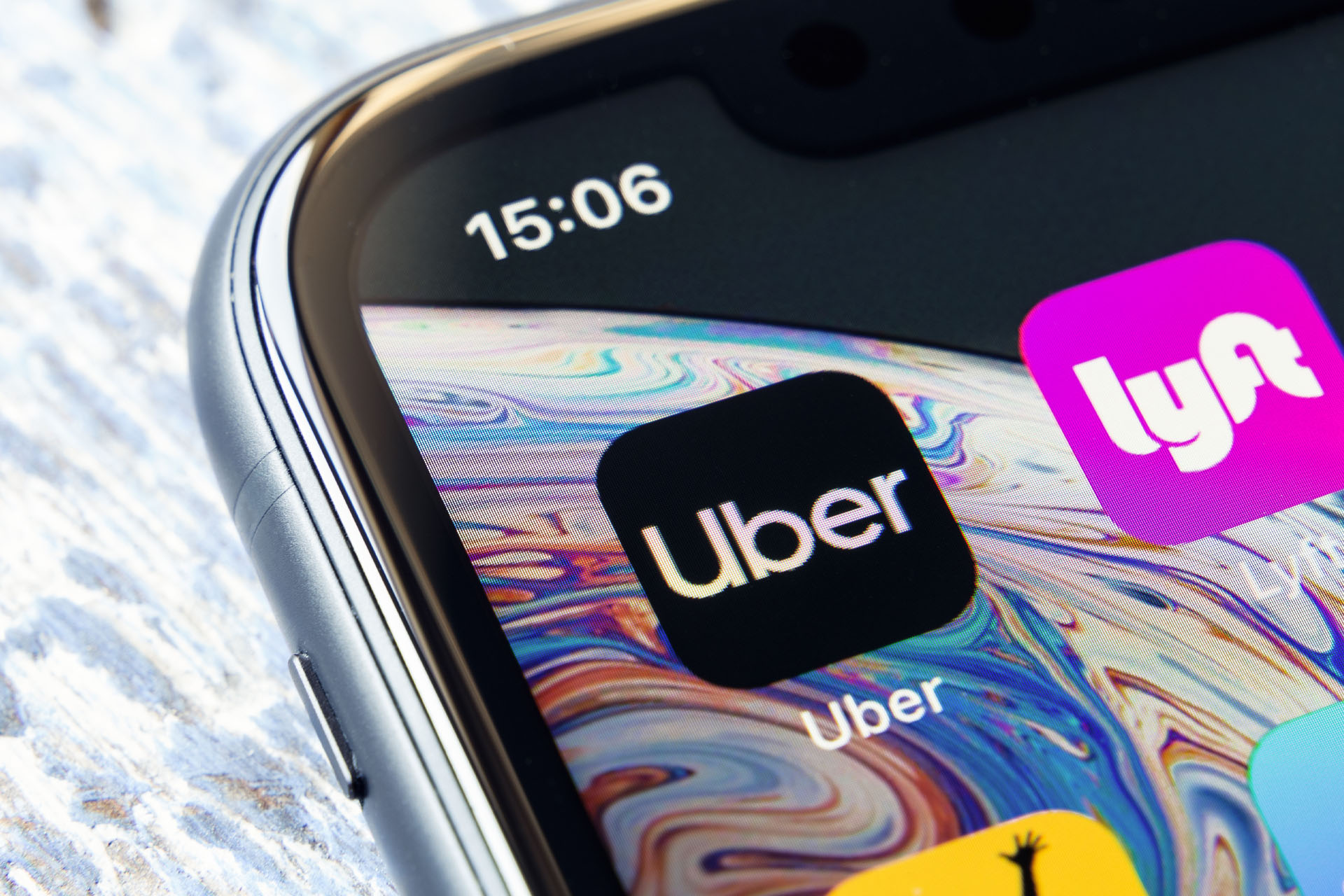
Lyft vs. Uber: Who Has Better Insurance Coverage For Riders? Advice From A Lyft Accident Attorney Los Angeles
In Los Angeles, where traffic feels like a never-ending maze and time is always of the essence, rideshare services like Lyft and Uber are more than just convenient—they’re practically a lifeline. But here’s something that might make you think twice: have you ever wondered what really happens if you’re involved in an accident while riding in one of these cars? It’s a scenario most of us prefer not to think about, but with the surge in rideshare accidents, understanding how well you’re actually covered by insurance could be more important than you realize. If the thought has crossed your mind—or even if it hasn’t—being aware of the insurance differences between Lyft and Uber can be a game-changer. Whether you’re dealing with injuries, property damage, or legal complexities, the support of a Lyft Accident Attorney in Los Angeles can be crucial. At Etehad Law, we’ve helped countless rideshare accident victims navigate the often-confusing world of insurance claims. As experienced Accident Attorneys in Los Angeles, we understand the challenges you face and are here to offer guidance. Let’s explore what you need to know, so you’re prepared and protected when you hit the road with one of these services.
Overview of Rideshare Insurance Coverage
Rideshare insurance coverage is distinct from traditional car insurance, and it operates based on the status of the rideshare app. In essence, there are three main stages of coverage: when the app is off, when the app is on but waiting for a ride request, and when a ride is in progress. When a rideshare driver’s app is off, their personal insurance policy is the only one in effect. The moment the app is turned on and the driver is waiting for a ride request, limited liability coverage comes into play, and this is provided by the rideshare company. However, it’s when a driver is actively transporting a passenger or en route to pick one up that the full insurance coverage kicks in.
For example, according to the California Department of Insurance, during this active period, both Uber and Lyft provide up to $1 million in liability coverage, which is designed to cover injuries and property damage in the event of an accident. This coverage, however, does not always guarantee an easy claims process, as rideshare insurance is often filled with complexities and potential gaps that riders and drivers should be aware of. Navigating these policies and understanding how and when you’re protected can be confusing, but it is crucial in ensuring your safety and peace of mind.
Lyft’s Insurance Coverage for Riders
Lyft offers a comprehensive insurance package for riders, but it comes with specific terms and limitations. During an active ride—when a driver is either on the way to pick up a passenger or actively transporting them—Lyft’s insurance provides up to $1 million in liability coverage. This means that if a Lyft driver causes an accident and you are injured, this coverage can be used to pay for your medical bills, lost wages, and other damages. Additionally, Lyft includes uninsured and underinsured motorist coverage, also capped at $1 million, to protect riders in cases where the at-fault party does not have sufficient insurance.
However, it’s important to understand the limitations. For instance, collision coverage only applies if the driver has comprehensive collision coverage on their personal auto insurance policy. Moreover, Lyft’s collision coverage comes with a hefty deductible of $2,500. These conditions can make filing a claim more complicated, especially if a driver’s personal insurance company denies the claim or if there’s a dispute about the sequence of events.
According to the California Department of Insurance, insurance claims involving rideshare companies are more likely to be disputed than claims involving traditional car insurance. This is because of the complexities surrounding when and how coverage applies. At Etehad Law, we’ve seen many cases where Lyft’s insurance policy failed to fully cover our client’s needs due to these complications. Understanding these details and how they apply to your specific situation can be critical when seeking compensation.
Uber’s Insurance Coverage for Riders
Uber’s insurance coverage is similar to Lyft’s but has a few differences that might matter in certain situations. Like Lyft, Uber provides up to $1 million in liability coverage when a ride is in progress. This coverage is designed to protect passengers if they are injured in an accident, regardless of whether the Uber driver or another party is at fault. Uber also includes uninsured and underinsured motorist protection, which is particularly important in Los Angeles, where a significant percentage of drivers are either uninsured or underinsured. According to the Insurance Information Institute, California has one of the highest rates of uninsured drivers, with approximately 16.6% of drivers lacking insurance in 2019.
Where Uber stands out is in the details of its collision coverage. Unlike Lyft, Uber’s collision coverage has a lower deductible of $1,000, making it slightly more favorable for drivers and passengers dealing with vehicle damage. However, just like Lyft, Uber’s collision coverage only applies if the driver’s personal insurance includes similar coverage.
The California Department of Motor Vehicles states that rideshare drivers are required to carry personal auto insurance that meets the minimum liability coverage requirements for the state. However, this personal insurance often does not cover incidents occurring while the driver is actively working for a rideshare service, which is why Lyft and Uber’s insurance policies are so essential. Despite these similarities, both companies are known for their rigorous claim investigations, which can delay or complicate the compensation process for injured passengers. At Etehad Law, we are well-versed in these issues and are dedicated to ensuring our clients are treated fairly.
Comparison: Lyft vs. Uber Insurance Coverage
When comparing Lyft and Uber’s insurance policies, it’s clear that both companies are committed to protecting their riders, but the differences in coverage details can influence the outcome of a claim. Both companies provide substantial liability and uninsured motorist coverage, but Uber’s lower deductible on collision coverage can make a difference in some scenarios. That said, the effectiveness of these policies often boils down to how claims are handled, which can be influenced by factors such as the driver’s personal insurance, the specific details of the accident, and how quickly evidence is collected.
For example, let’s say you’re in an Uber that gets hit by a driver who is uninsured. In this situation, Uber’s uninsured motorist coverage would apply, providing financial protection for your injuries and other damages. If the same scenario occurred in a Lyft, the outcome would be similar, but any disputes or delays in payment could hinge on the specific details of the incident and how the claims adjusters handle it.
Understanding these nuances is crucial. At Etehad Law, we’ve represented clients whose claims were initially denied or underpaid and helped them fight for the compensation they deserved. Knowing which rideshare company’s insurance is more likely to work in your favor can be helpful, but having a skilled attorney can be even more critical.
Advice from a Lyft Accident Attorney in Los Angeles
If you ever find yourself involved in a rideshare accident, there are a few steps you should take to protect your rights and strengthen your case. First and foremost, prioritize your health and safety. Seek immediate medical attention, even if you feel okay, because some injuries may not manifest right away. Next, document everything. Take photos of the accident scene, your injuries, and any vehicle damage. Collect contact information from witnesses and get a copy of the police report.
Reporting the accident to the rideshare company is also crucial. Both Lyft and Uber have built-in reporting features in their apps, which you should use to officially notify them of the incident. Once you’ve reported the accident, consider consulting with an experienced attorney. Rideshare accident cases can be complex, especially when insurance companies attempt to minimize payouts or place blame elsewhere. At Etehad Law, we know how to navigate these challenges and will work tirelessly to secure the compensation you deserve. The California Office of Traffic Safety emphasizes the importance of documenting every detail after an accident, as this information can be invaluable when filing an insurance claim or pursuing legal action.
Conclusion
Understanding the differences between Lyft and Uber’s insurance coverage is essential for protecting yourself as a passenger. Both companies offer extensive protection, but the details can vary in ways that impact your ability to receive fair compensation. Being informed about these policies and knowing your rights can make a significant difference if you’re ever involved in a rideshare accident.
At Etehad Law, we specialize in representing rideshare accident victims. Our team is here to help you understand your rights, navigate the complexities of insurance claims, and fight for the compensation you deserve. If you’ve been injured in a rideshare accident, don’t hesitate to reach out. Schedule a consultation with our experienced attorneys today, and let us guide you through this challenging time with expert advice and compassionate support.


